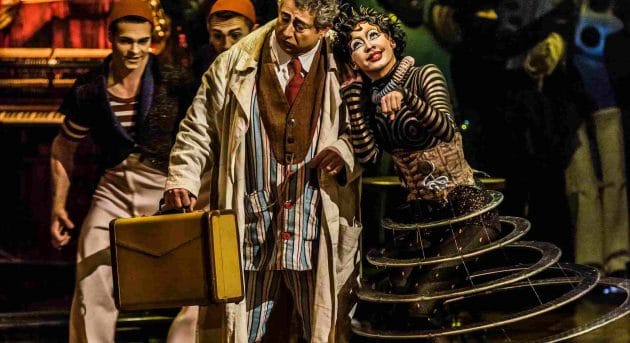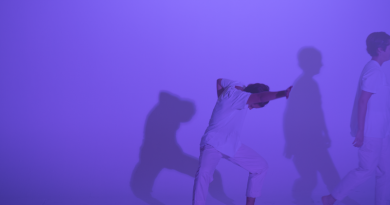Painting your face doesn’t make you a clown
From Charlie Chaplin to Mr Bean, the ‘clown’ has been entertaining audiences since theatre began. Though clowning may have evolved over time to satisfy the expectations of the audience, the principles behind this delightfully endearing art form remain timeless.
For many, the black and white movies of Charlie Chaplin remain etched in their mind as a first introduction to the wonderful world of clowning, but in our modern world, the clown has a new face and it’s more colourful and adorable than ever before.
I caught up with the exceptionally talented Anton Valen and Facundo Gimenez who are both currently performing in Cirque du Soleil’s latest creation, Kurios, to find out more about this amazing art form.
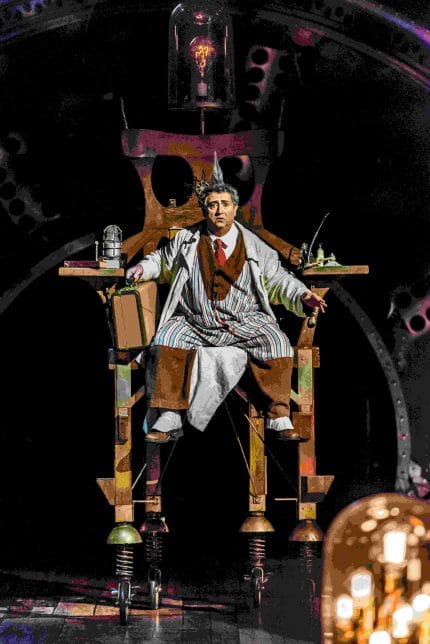
I was keen to know what first attracted these two performers to the circus and quickly discover that they took very different journeys to get to where they are today.
As we sit under the Grand Chapiteau at the Entertainment Quarter in Sydney, Anton, who has now appeared in 2 shows with Cirque du Soleil (Alegria, Kurios) and has a total of 32 years under his belt as a comic performer tells me that growing up, he did not like clowns at all.
“I felt that everything was a lie, the slapstick comedy was very predictable and there was no depth to the character,” he said. “I would watch their body language and behaviour and I could tell that they were not being genuine, so I could not feel any connection.”
“I went to study in Paris in 1991 and a friend invited me to see a clown show, I was not interested in going so declined the offer, but I was forced into going along non-the-less. The show we saw was by Slava Polunin and about 10 minutes in I said to myself, I want to do this! It was such a truthful performance and it felt so real, so different from any clowning I had experienced up until this point.” Anton Said.
He smiles subtly as he recounts the moment of change in his mind about the role of the comic performer.
Facundo’s story is very different, he was exposed to the circus much younger and had the opportunity to grow into the role.
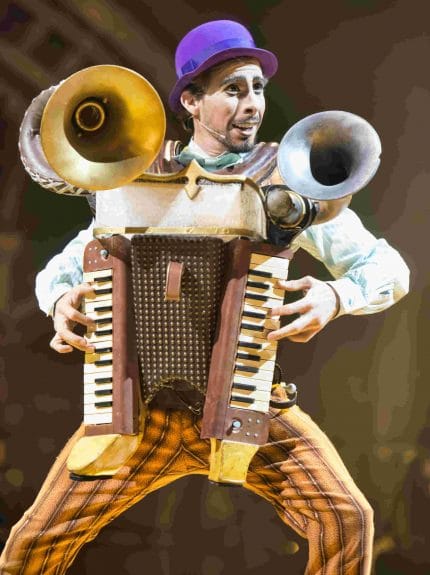
“I started when I was a kid because my parents came from traditional circus. When I was young, my dad bought a circus and became the company manager of his own show but sadly when I was about 8 or 9 [years old] the company broke and he lost everything.” Facundo told me.
“With nothing left, he started touring with a different company as a performer and I was along for the ride. I thought I’d start doing something with the show and I was a kid, so naturally, I was most attracted to the clown. When I was a growing up I was super goofy and always enjoyed making people laugh, so what else was I going to do? I was a clown!”
Facundo has built his career through experience on the job and has constantly evolved his clowning techniques in front of an audience but describes the discipline of working on a Cirque du Soleil show as something very unique.
“Coming into rehearsals for this show was much more like being a formal actor,” he said. “Yes, you have all of your clowning actions in your toolbox, but unlike traditional circus, your role in the story is much more defined. You have to work very hard with the director to develop the style of humour that works for the show. You have to be open and elastic to adapt to the specific colour, texture and narrative of the show.”
Anton describes his experiences working on Kurios as, “a complex adventure”.
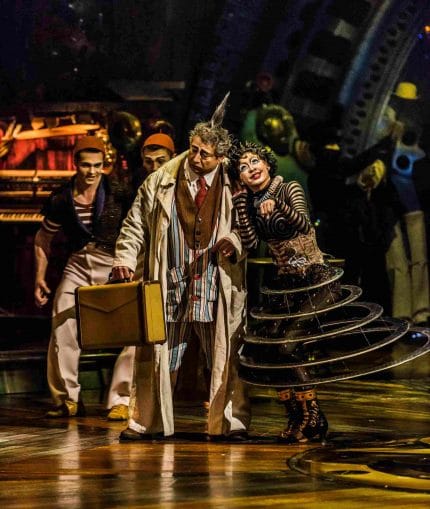
“The director [Michel Laprise] wasn’t exactly sure what he was looking for from my role,” he tells me, “but he did know that he was looking for the energy of a child. Not an infant; a child, with real childish wonder.”
Anton explains that he leant the true art of clowning is through execution. He has taken numerous classes throughout his life and even now teaches when he gets the opportunity but was very clear that, “what makes people laugh in a classroom is very different from what makes people laugh in a theatre.”
Facundo continues;
“You only really learn through standing on stage in front of an audience and playing with their energy. You have to progress without fear. Let everything go and trust that your subconscious will find a solution to the problem. Be completely open and be completely vulnerable,” he says.
“Every now and then things don’t go how you might like, but the clown has to take the risk, that’s none negotiable. You can practice techniques and rehearse your physical comedy but your mind has to be in the moment and ready to fail.”
Both performers agree that if you want to develop your skills as a comic performer you have to listen, to everything.
“Listen to the situation, to the audience, the timing, the movement, the volumes, your inner ridiculousness,” says Facundo.
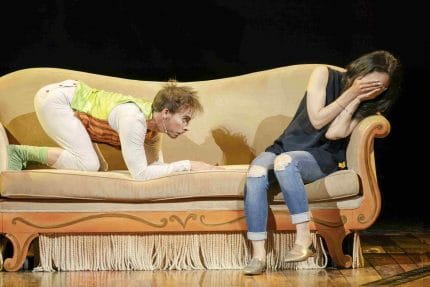
“Never forget to be real. Focus on your own needs, you should never like anybody more than you like yourself. If it feels good to you, do it. You should only ever worry about what feels real and what feels good for you, don’t mind about how many comments or likes you’re getting from the proof of other people. If they don’t like what you’re doing and you have to find your audience, that’s fine because they will like you for you. Only then will you feel complete, it’s like being in the perfect relationship.
And as a final word of advice, Facundo imparts;
“Not many people know what the true philosophy of the clown is, even if you have been working years in acting, people assume the role of the clown is the comedy. The clown is so much more connected with the person than people realise. When you were a kid, you act without ego, that is exactly what clowning is. Creating a character through connection and empathy. The weakness of mistakes and actions is so poetic.
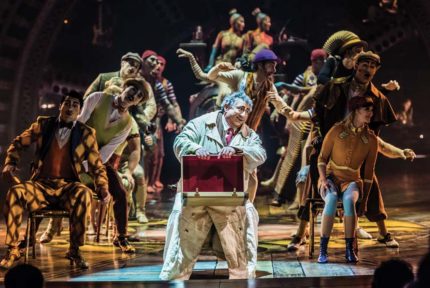
We all are stupid somehow, we are all fragile, somehow. Instead of trying to show the world how strong we are, the philosophy of the clown is the opposite, show the soft part, the weak part, the vulnerable part; and though that, we become very strong indeed.”
Kurios is now in season in Sydney, Under the Grand Chapiteau at the Entertainment Quarter and has an upcoming Brisbane season from January 2020.
For more information at booking, visit this link.

